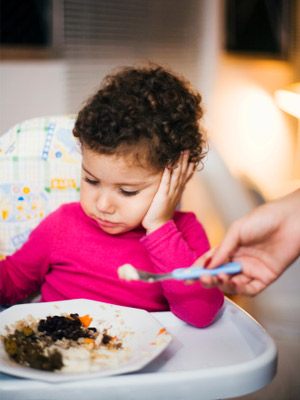Is your kid a terrible eater? It’s not just your child trying to be difficult, says Dr Boosba Vivatvakin; there could be a variety of reasons why children might refuse to eat.
If mealtimes at home with your young child involve cajoling, threatening, or pleading with your child to eat, you might be dealing with what is commonly described as picky eating. A name does not make the problem any easier to handle, but it might be helpful to understand that your child’s dining table troubles could be more than just a tantrum.
Trouble eating?
By definition, a picky eater is over two years of age, selects and chooses to eat certain foods, and refuses other food items. Among younger children, the same phenomenon is called food phobia or food refusal.
With children, taste buds are evolving and it is quite possible that some foods might not appeal to their tastes at a certain age. As they grow older, they might dislike foods that they once liked and enjoy foods that they once disliked. Children also have a more sensitive sense of taste than adults, making them choosy about foods.
Certain dietary habits or patterns might also be responsible for your children being finicky about what they eat. If children are regularly served food that is too sweet, they may feel full and might skip the next meal. Or they may develop a fondness for sweets and might not like other food. This could deprive them of the nutrition they need. Also, if the food is very oily, children will feel full for longer and might refuse to eat. The structure and the texture of food will also matter.
Some anxious parents worried about allergies or obesity or other such problems might impose food restrictions. With milk and dairy products taken out of their diets, children suffer calcium and protein deficiencies and could develop food phobias.
Children might also have medical problems that make them fussy about food. Abdominal pain, gastritis, ulcer, constipation, trouble swallowing, esophagitis, and other such problems may be responsible for why children refuse food. Any throat trouble or even esophagitis (an inflammation of the oesophagus) could make it painful for a child to swallow even semi solid food and they might not be able to explain this, choosing instead to refuse food. In case of teeth eruption (when new teeth are developing) or in case of meningitis, children tend to refuse to eat or they might throw up after eating.
It helps to check children’s stools. Hard stools might mean that your child needs more water. In addition, check if your child’s tummy seems bloated. This could indicate stool blockage or other problems. If your child’s tummy is flat, then the eating problem might be emotional.
Abdominal pain can also be a symptom of a medical problem. Unfortunately, children cannot explain the type of pain they feel, making it difficult to diagnose. It is also possible that abdominal pain is an excuse that has worked before and is employed to refuse food that children do not like. If children eat 2-3 spoonfuls and then complain of pain, it could be because they do not like the food, have full bowels, or the food triggers an allergic reaction. Therefore, behavioural and food patterns will have to be assessed or you could consult a doctor to rule out a medical problem. A food calendar also helps keep track of adverse reactions to certain foods.
In some cases, a neuro-developmental disorder like autism could also make children fussy about food. Nearly 80% of autistic children have food-related issues.
If it seriously affects food intake, picky eating could lead to malnourishment and sickness.
Diagnosis and treatment
A physical exam helps diagnose any underlying medical problem that might be causing picky eating. In some cases, further tests might be recommended. Hepatitis, urinary tract infection, gastro-esophageal reflux disease, etc., popularly cause lack of appetite that might lead you to think that your child is being fussy about food. Consulting a doctor will help identify such problems and treat them.
Unfortunately, picky eating can set off a vicious cycle. Selective eating can cause nutritional deficiencies that affect appetite, which can make children more disinterested in food. Such nutritional deficiencies once identified will have to be corrected. Sometimes, it might not be possible to persuade children to eat foods that contain the nutrients they need. In this case, it might be best to consult your doctor and give your child nutritional supplements.
Prevention
Once diagnosed, a medical problem has to be treated appropriately using medication to correct picky eating. However, if this is a behavioural problem, it might need to be dealt with differently.
It helps to establish certain habits early on. For instance, by two years of age, your children should be used to eating as a family. If children see the rest of the family eating everything, they are less likely to refuse foods. Try and ensure that the food is not too sweet or too oily or even too hard and crunchy.
Experts suggest varying a child’s diet to increase the range of foods they taste. This also helps ensure that your child receives the nutrition it needs even if it might not like the taste of certain foods, because some other food item could provide the same proteins and vitamins. Picky eating, if it is a behavioural problem, usually emerges after the age of two. Around this age, children actually enjoy eating and appearance is important in matters of taste. So, colourful foods presented in fun shapes or patterns can actually entice children to eat. Smaller, more frequent meals are also helpful; children are unlikely to feel full and refuse food. A meal routine also helps. Sometimes, cooking the same vegetable using different recipes might help children accept it. Potty training is also helpful in this regard; healthy, regular stools will empty the bowel to accept the new coming food.
Do not force your children to eat something that they do not like. Also, your anxiety over children’s eating habits is usually transmitted to the children. Therefore, it is important to be gentle with children and prepare a relaxed dining setting.
By Boosba Vivatvakin, Professor, M.D., a specialist in Paediatric Gastroenterology and Hepatology at Samitivej International Children’s Hospital
(Editor’s note: This article is sponsored content from Samitivej International Children’s Hospital, and it is reprinted here with permission of the hospital.)















